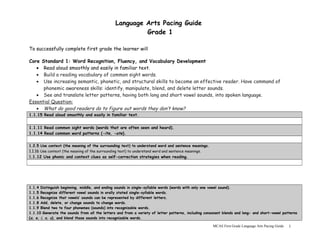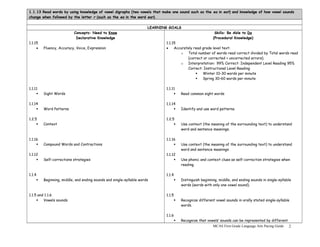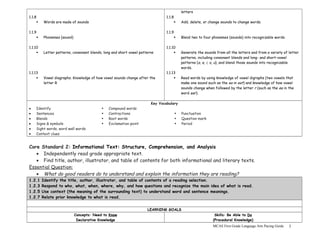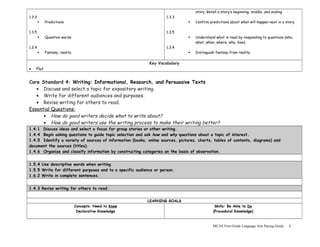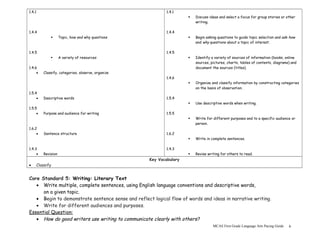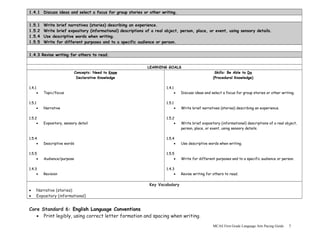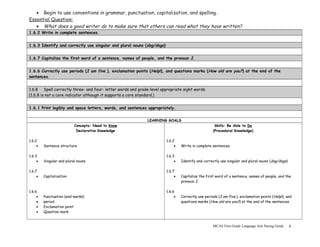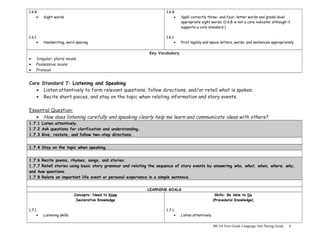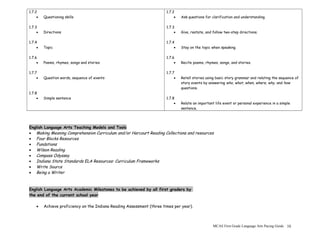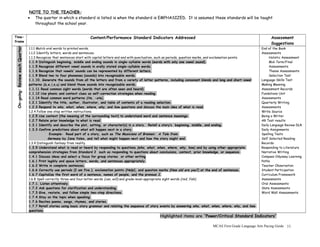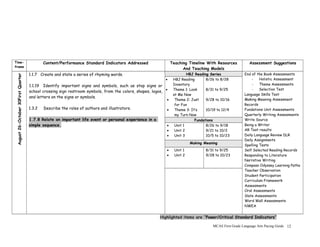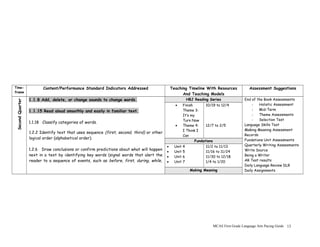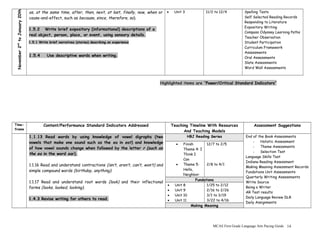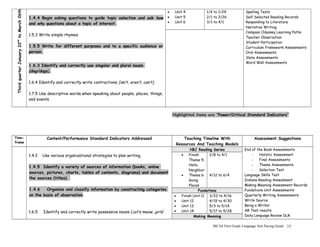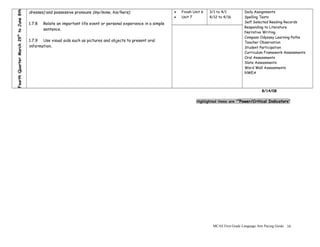1. This document provides a pacing guide for first grade language arts standards and core concepts. It outlines standards, learning goals, key vocabulary, and skills students need to demonstrate proficiency in reading, writing, and language.
2. The guide is divided into five core standards covering areas like word recognition, reading comprehension, analyzing texts, informational writing, and literary writing. It lists declarative knowledge and procedural skills students need to master for each standard.
3. Students will build skills in reading fluency, vocabulary, comprehension, analyzing texts, the writing process, revising work, and writing for different purposes and audiences. The pacing guide aims to support students in successfully completing first grade language arts.
